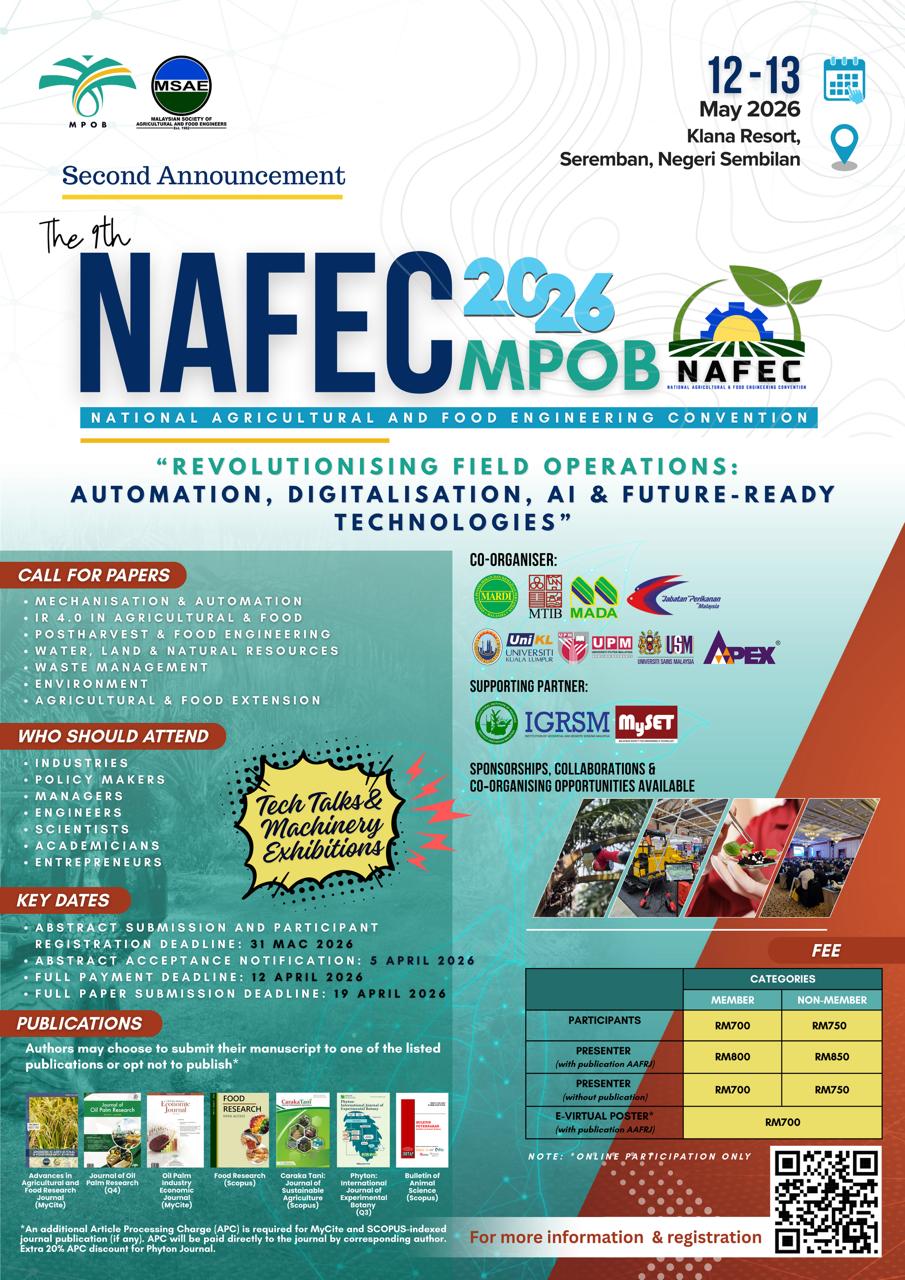Plant Factory Airflow Distribution Analysis with Different Inlet Configuration
DOI:
https://doi.org/10.36877/aafrj.a0000242Abstract
Airflow is important in plant factories as it is responsible for the air exchange inside the structure to create desired growing conditions for plants. A uniform airflow distribution enhances photosynthesis and the transpiration process of the plants. In this study, computational fluid dynamics (CFD) analysis was used to analyse the airflow distribution inside a commercial scale plant factory developed by MARDI. CFD plays an important role in designing and optimisation of control environment structure in the agriculture industry. Many studies have proved that the CFD technique is able to predict the internal climate of the plant factory in the designing stage before the actual plant was built. This study was conducted to analyse the airflow characteristics in a plant factory with different inlet and outlet locations. The study also analyses the effect of different inlet location to the overall temperature distribution inside the plant factory. Validation of the developed CFD model was carried out by comparing simulation results with experimental data. The validation result showed an acceptable percentage error between simulated and actual data. The validated CFD model was then used to analyse different inlet locations that can produce more uniform airflow and temperature distribution inside the plant factory. From the simulation results, it shows that the new inlet location was able to produce more uniform airflow and temperature distribution as compared to existing inlet location.
Downloads
Published
How to Cite
Issue
Section
License
Copyright (c) 2021 Dr. Arina Mohd Noh, M A Mohd Tahir, K A Shafie

This work is licensed under a Creative Commons Attribution-NonCommercial 4.0 International License.
Author(s) shall retain the copyright of their work and grant the Journal/Publisher right for the first publication with the work simultaneously licensed under:
Creative Commons Attribution-NonCommercial 4.0 International (CC BY-NC 4.0). This license allows for the copying, distribution and transmission of the work, provided the correct attribution of the original creator is stated. Adaptation and remixing are also permitted.

This broad license intends to facilitate free access to, as well as the unrestricted reuse of, original works of all types for non-commercial purposes.
The author(s) permits HH Publisher to publish this article that has not been submitted elsewhere.

.png)

.jpg)



